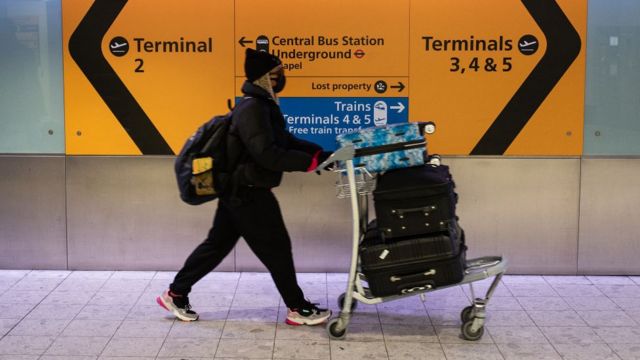A new sad record has been set in the UK: another 1325 people have died from coronavirus within 28 days of diagnosis. In total, nearly 80,000 people in the country have died from coronavirus since the beginning of the pandemic. Against this backdrop, the third coronavirus vaccine from the US company Moderna was fast-tracked for approval in the UK. The authorities have already ordered 17 million doses of this vaccine, which will be administered alongside the two previously licensed vaccines – Pfizer-BioNTech and Oxford-AstraZeneca. In total, approximately 1.5 million people in the United Kingdom have received the vaccine.
On Friday, another record, this time positive, was announced: nearly 620 thousand coronavirus tests were conducted in the country in one day.
The Mayor of London, Sadiq Khan, has declared that the coronavirus situation in London is out of control. The mayor announced a state of emergency. According to government estimates, the number of infected people in London has exceeded one thousand for every 100,000 people in the capital. The Office for National Statistics puts the figure even higher: it calculates that one in 30 Londoners could be infected. According to Sadik Khan, there are currently more than 7,000 coronavirus patients in the capital’s hospitals, a 35% increase from last year’s peak. According to Sadyk Khan, the ambulance service receives up to 8 thousand calls a day, while the usual number is 5.5 thousand. More than 100 London firefighters have been temporarily transferred to ambulances to help with the situation.
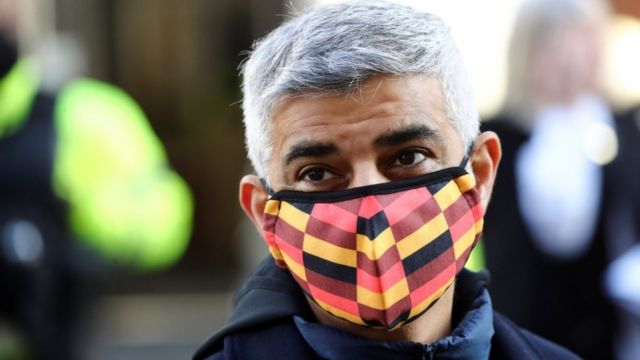
According to Sadiq Khan, the situation in London is out of control. “If we do not take urgent action now, our health system will not be able to cope and more people will die,” warns the Mayor of London, who has already written to the Prime Minister asking for additional financial support for those forced to isolate themselves and unable to work. He also urges the closure of places of worship and the mandatory wearing of masks in the streets.
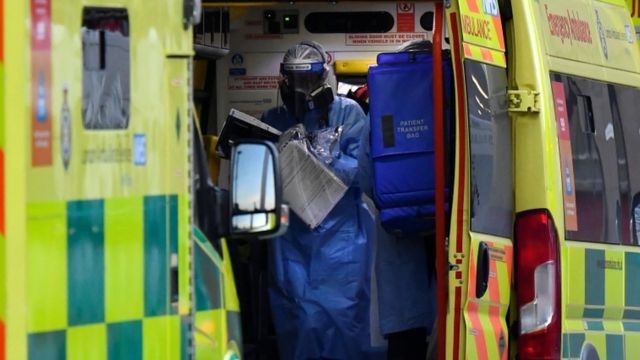
London ambulance services receive up to 8,000 calls a day, compared to the usual 5,500. A major incident is an event or situation with serious consequences that requires special action by one or more emergency agencies. Previously, incidents such as the 2017 Grenfell Tower residential tower fire and the Westminster and London Bridge terrorist attacks were classified as emergencies.
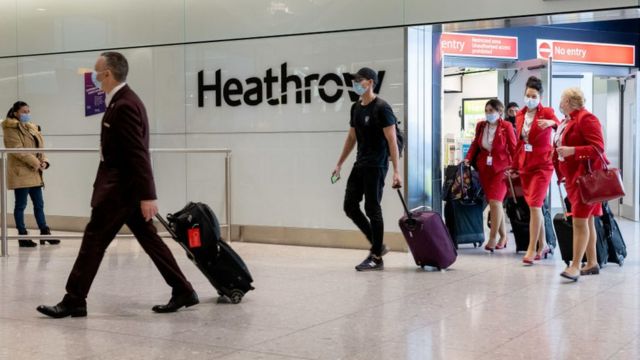
We explain quickly, simply and clearly what happened, why it matters and what will happen next. Episodes End of story. Podcast Advertising. Those wishing to visit England or Scotland must present a certificate stating that they are free of coronavirus. According to officials trying to stop the spread of the new strain of the virus, such a requirement may soon be in place. So far, the government has resisted such measures, insisting that quarantines for people arriving from countries with high levels of infection are far more reliable. Now, however, Britain has apparently decided to follow the lead of many other countries that have long required such certificates from arriving individuals. The Department of Transportation states that foreigners and British citizens arriving in the United Kingdom from abroad will be required to produce certificates of a negative Covid-19 test taken no more than 72 hours prior to arrival in the country. The new rules are due to come into force at the beginning of next week, and those who cannot provide such a certificate will face a £500 (around €550) fine. The Scottish Government, which has the power to make its own rules in the health and transport sectors, has stated that it will introduce such requirements as soon as it is practicable to do so. In addition, Transport Secretary Grant Shapps reported that he has been in talks with his counterparts in Wales and Northern Ireland, who may also have their own policies in these areas, and they have assured him that they are likely to approve this measure as well. “I suspect that by next week this requirement will apply to the whole territory of Great Britain,” Shepps said in a television interview. “We are doing this because there are mutations of the coronavirus, such as the South African strain, and we do not want it to be imported into Britain.”
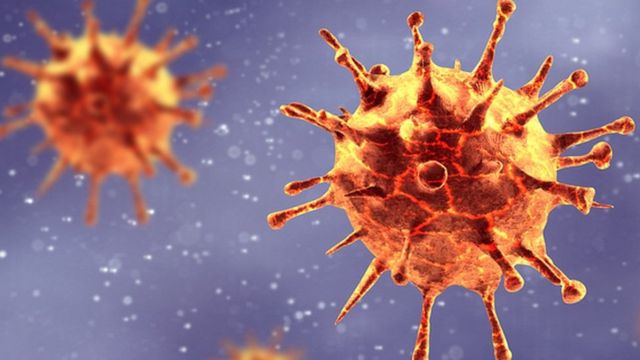
According to experts, the South African strain has evolved new spike proteins that can evade the human immune system. According to scientists, the new strain may make the disease more contagious and less responsive to treatment by altering the mechanism by which the virus attaches to human cells. “There is particular concern that the vaccine may be less effective against this South African strain. So we just don’t want to take any unnecessary risks,” Shepps said. According to Professor Francois Ballou, Director of the Institute of Genetics at University College London, the mutation in the spike protein of the virus in the South African strain helps the virus to overcome the immune protection built up as a result of vaccination or previous illness. However, according to Kate O’Brien, head of the WHO immunization program, such mutations are unlikely to affect the effectiveness of vaccines.
The European Union has reached an agreement with Pfizer and BioNTech companies to purchase an additional 300 million doses of the Covid-19 vaccine. In November, the EU signed a contract with Pfizer and its German partner BioNTech for the purchase of 300 million doses. This means that almost half of the companies’ total production planned for 2021 will be in Europe. Vaccines are usually distributed among European Union countries in proportion to their population, but in the case of the new contract, it is not yet clear whether all countries will order according to this principle. Pfizer plans to produce up to 1.3 billion doses worldwide this year.
Portugal and Ukraine have decided to follow the rest of Europe in tightening pandemic measures amid the spread of a new, more contagious strain. Ukraine announced a lockdown the day after Orthodox Christmas, fearing that the number of infected people could rise again after the holidays. A state of emergency has been declared in Portugal for a period of 15 days. All weekend travel is prohibited and a curfew has been extended in most of the country. In the Czech Republic, where a strict lockdown was imposed in late December, Health Minister Jan Blatny retracted his statement that vaccinated people cannot transmit the infection. He conceded that there was no solid evidence of this yet. France is ready to allow ski resorts to start operating lifts if the epidemiological situation allows it by January 20, said Deputy Tourism Minister Jean-Baptiste Lemoyne. Former French Prime Minister Jean Castex said the country’s restaurants will be closed until at least mid-February and ski resorts will not open until the February holiday season because the infection is spreading too quickly and hospitals are overwhelmed by the influx of patients. On Friday, the Swedish Parliament passed a pandemic bill that gives the government new powers to contain Covid-19. Sweden bucked the global trend and never resorted to lockdowns, but the second wave of infection in recent months hit the country much harder than expected, and the authorities decided to tighten measures anyway. Under the new law, which goes into effect Sunday, the government will be able to shut down businesses and shopping centers and suspend public transportation. Researchers in South Korea, mindful of the global shortage of hospital beds during the peak of the pandemic, have invented an inflatable negative pressure tent for the isolation and treatment of infectious patients. Developed by specialists at the Korean Advanced Institute of Science and Technology (KAIST), Mobile Modules are inflatable greenhouse-like tents that are five times cheaper than traditional hospital tents. The ventilation system creates negative pressure in these chambers so that air is naturally drawn in and then expelled through special vents, preventing the spread of airborne infection. Such stations have become the main tool in the fight against the pandemic in South Korea, but many countries have not yet had the opportunity to use this new technology. Japanese authorities are considering the possibility of extending the state of emergency beyond the Tokyo area as the number of infections with the new strain of coronavirus increases, but are concerned that this could exacerbate the economic downturn. As Prime Minister Yoshihide Suga said on Friday, the measures taken in the capital region may need to be extended to other areas of the country.

